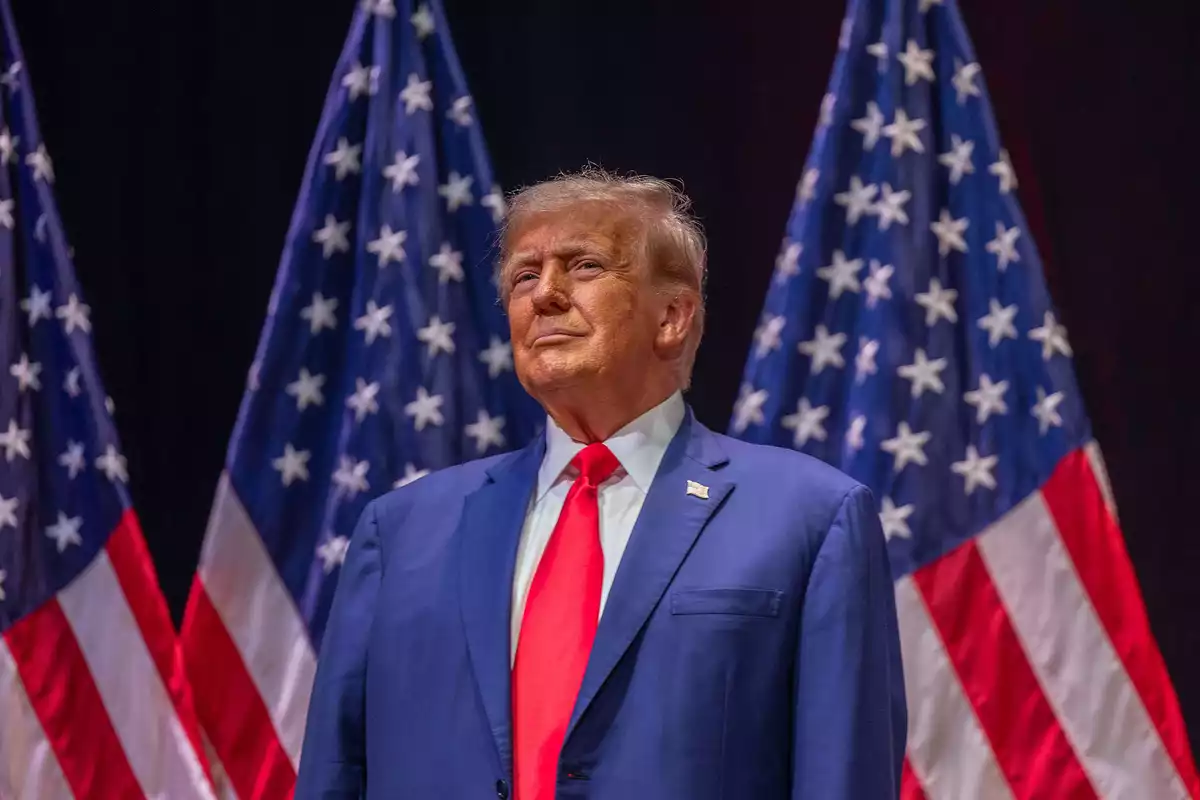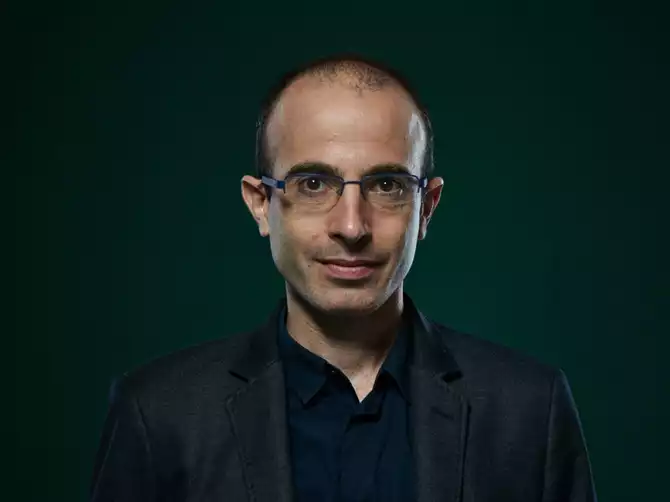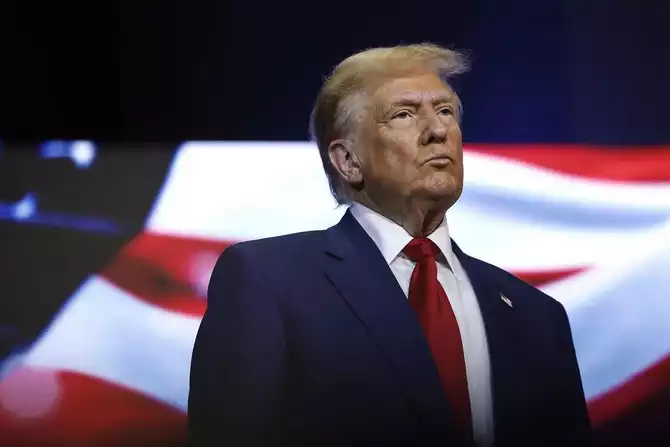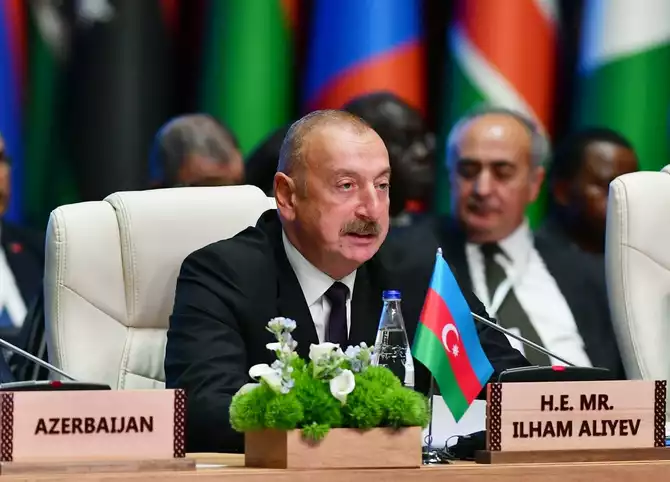
Getty images
One of the world’s most widely read and cited thinkers, Israeli philosopher and author Yuval Noah Harari, is once again in the global spotlight - this time thanks to his April 18 op-ed in the Financial Times. In it, Harari reflects on the worldview of U.S. President Donald Trump, characterizing it as a zero-sum perspective in which “the strong trample the weak,” a worldview that, according to Harari, stands in stark contrast to the liberal international order, which sees the world as “a network of potential win-win collaborations.”
We do not intend to dissect Harari’s ideas line by line, but rather to highlight his key assertions about Trump’s outlook on global affairs - and then ask a simple question from the perspective of Azerbaijan’s own national experience. After living through three decades of occupation, displacement of over a million people, and appeals to international justice, we ask: where exactly was this much-praised “win-win cooperation” that the liberal order allegedly offers?

Photo by Charles Surbey
Harari argues that Trump views every negotiation as one with clear winners and losers, and that international institutions, agreements, and laws inevitably weaken some nations while strengthening others. In this view, international law has no place. Conflict, under Trump’s framework, arises when the weak refuse to “accept reality” - thus making them, by definition, responsible for wars. This, Harari argues, is the lens through which Trump sees Ukraine.
He warns that if Trump’s vision prevails, the world may return to an era of “high walls” - financial, military, cultural, and physical. And history, Harari asserts, shows that such a model leads not to stability but to endless cycles of imperial conquest and war. Rather than working together to confront global challenges such as climate change or artificial intelligence (AI), we may find ourselves trapped in a spiral of trade wars, arms races, and imperial expansion - all paving the way toward global conflict, environmental collapse, and ungoverned AI.
Harari critiques Trump’s idea that rival powers can avoid conflict simply by “accepting reality” and making deals. The truth, he argues, is that the stronger powers will eventually consume the weaker ones. And yet, we must ask: has the international order ever truly functioned differently? Have not the “strongest” powers always dictated the rules, often ignoring the very same international norms they claim to uphold?
From Azerbaijan’s standpoint, these aren’t rhetorical musings - they’re grounded in lived experience. For decades, Azerbaijan’s territories were occupied, and its appeals to international law, to UN resolutions, to basic justice, were consistently ignored. As President Ilham Aliyev has noted, it is often those very countries who claim to be the guardians of international law who violate it first - and then justify their actions after the fact.

Photo credit: Reuters
Harari's critique of Trump’s worldview may carry merit, but it omits a crucial dimension - the failure of the so-called liberal world order to act when justice and rights were at stake. For example, where was this “order” when leading liberal figures called for a boycott of COP29, a conference aimed at confronting the existential threat of climate change? What explains the chronic disregard of Chinese President Xi Jinping’s call to build a “community of shared future for mankind”? Or the tendency of the liberal bloc to divide the world into “friends” and “foes,” often based on little more than geopolitical expedience?
These are not emotional reactions. They are reasoned questions born of Azerbaijan’s encounters with global double standards. Let us be honest - was it not under the Biden administration, echoed by much of Europe, that we witnessed the effective disappearance of international law? As President Aliyev rightly stated: “It is no longer possible to rely on international law, resolutions, or decisions. Yet, we continue to support justice and the rule of law in the international arena.”
Harari, one might ask, has surely seen this erosion of norms long before Trump’s return to the Oval Office became a real possibility.
And yet, there is a notable tone of despair in Harari’s outlook on global geopolitics. We, however, would suggest a more nuanced view - one that recognizes the emergence of “middle powers” that are beginning to shape regional security dynamics, infrastructure corridors, and integration frameworks. Azerbaijan is one of those powers. Having restored its territorial integrity in accordance with international law, it now plays a constructive role in shaping regional stability and connectivity.
While Harari claims that in Trump’s world “the weak are always to blame,” perhaps the real lesson of history is that the powerful have always sought to impose their will - and that such arrogance has often led to revolution, resistance, and war. The antidote, as President Aliyev has often said, is strength - not for domination, but for the defense of sovereignty, national identity, and the right to choose one’s own path.

Photo: Azertac
There is one final parallel worth drawing - to Harari’s own 2020 Financial Times essay titled “The World After Coronavirus.” In it, he wrote: “This storm will pass, humankind will survive, but we will inhabit a different world.” And humanity, he argued, must choose between disunity and global solidarity - the latter being our only chance of overcoming future crises.
Well said. But we must now ask - has the liberal international community he praises so often taken even the first steps toward such solidarity?
In contrast, Azerbaijan has actively sought to bridge North and South, rich and poor, developed and developing. As President Aliyev noted during a recent international forum at ADA University: “Baku managed to establish dialogue between the Global South and the Global North. We received a positive response from many African nations. We left behind a valuable legacy within the Non-Aligned Movement, creating both Parliamentary and Youth platforms. We provided humanitarian and financial support to over 80 countries, including through education and health programs.”
And let us not forget that Azerbaijan was one of the first countries to raise its voice against “vaccine nationalism,” even initiating a special session of the UN General Assembly to address the issue.
If we are to advocate for global cooperation, why not take inspiration from Azerbaijan’s model of multiculturalism? As President Aliyev has said, “The alternative to multiculturalism is self-isolation. We must strive for greater cooperation among all peoples of the world and foster understanding, not confrontation.”
And so, while some retreat behind ideological fortresses, it is time for the world to listen to new centers of thought - places like Azerbaijan, where regional cooperation is not a weapon, but a tool for building a more inclusive, equitable, and stable global order.
To those philosophers, historians, and sociologists searching for real-world examples of how global solidarity might work - we say, come to Baku. See for yourselves what a responsible middle power can achieve.
Share on social media